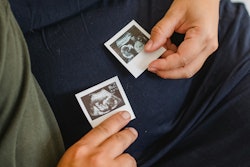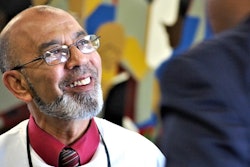As droves of mental health professionals rush in to counsel the thousands of evacuees whose lives have been upended by Hurricane Katrina, some Black mental health care providers say the glaring racial disparities and classism the disaster exposed could severely hamper recovery efforts.
The obliteration of New Orleans and other Gulf Coast communities drew immediate comparisons to the tsunami that overwhelmed Southeast Asia on Dec. 26, 2004. But the graphic images of desperate Black Katrina survivors “was akin to events of Haiti and Kosovo or any war-torn country,” says Denver psychologist Dr. Robert Atwell, president of the Association of Black Psychologists.
Blacks in New Orleans and in other parts of the Gulf Coast “lost everything that makes them who they are” says Atwell of the sub-cultures and social traditions that existed among the Crescent City’s poor and Creole populations. The victims, he says, not only suffered from the disaster, but experienced multiple traumas, compounded by “historical and traditional racism, classism and benign neglect.”
“What happens to a people who have been disposed, despised and disinherited when tragedy occurs?” asks Atwell. “The answer is that they are seen as dispensable and can thus be destroyed and disposed of. The destruction of a people is preceded by the defamation of one’s character.”
Now, says Atwell, “We’re scrambling to get their needs addressed, and it’s important that Black therapists get access to Black people to provide the mental health care they need.
“But the truth is if we sent every Black psychologist, every Black psychiatrist, every Black social worker and every Black nurse into the field, we’d still come up short. There’s just not enough of us,” he says.
Most of the hurricane evacuees, including nearly 70 percent of those who fled the flooding and devastation in New Orleans, are Black. The overwhelming majority of the mental health care providers being dispatched to the Gulf Coast region, however, are White. According to the federal Center for Health Statistics, African-Americans comprise less than 5 percent of the professionals in most mental health fields.
The Long-Term Impact
It could take up to three years before Katrina survivors begin to experience some level of psychological recovery, says University of Illinois at Chicago psychiatrist Dr. Carl C. Bell, who heads Community Mental Health Council & Foundation Inc., one of the largest community health facilities in the country. He argues that the long-term psychological impact of the hurricane could overwhelm a health care system facing unprecedented challenges, particularly the immediate psychological needs of the evacuees.




















